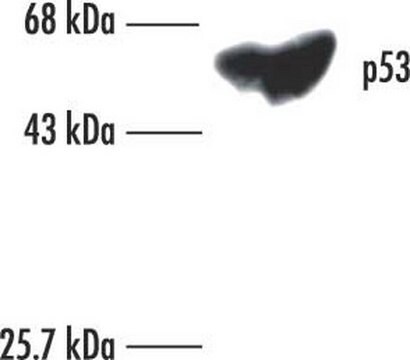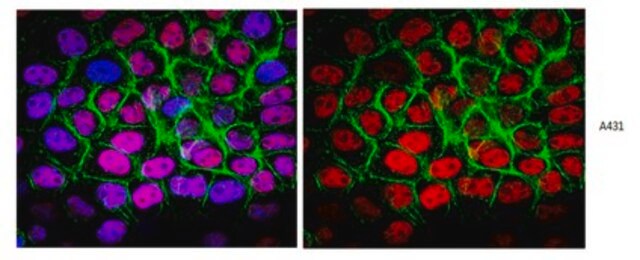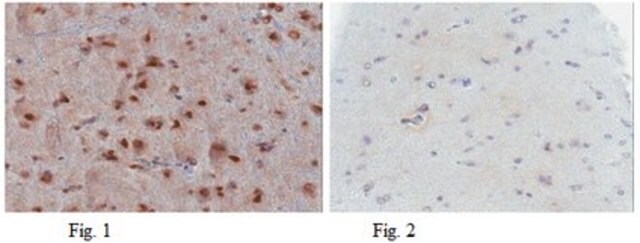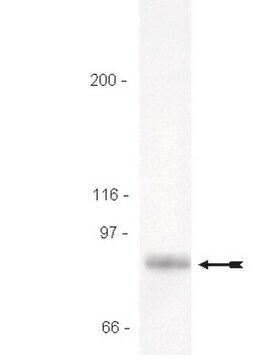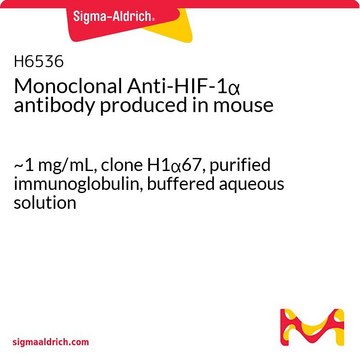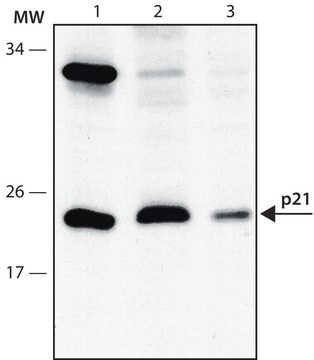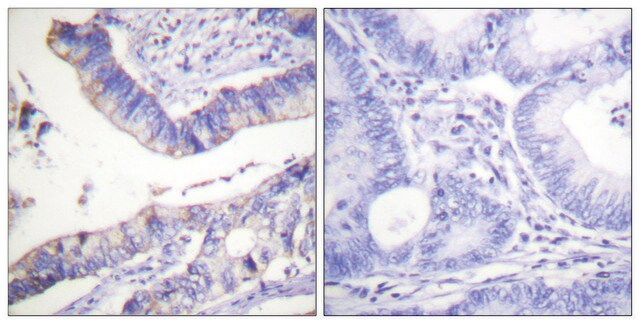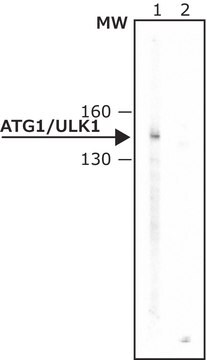P6749
Anti-p53 antibody, Mouse monoclonal
clone PAb1801, purified from hybridoma cell culture
Synonym(s):
Anti-p53 antibody, Mouse monoclonal, Anti-TRP53, Anti-Transformation-related protein 53
About This Item
Recommended Products
biological source
mouse
Quality Level
conjugate
unconjugated
antibody form
purified immunoglobulin
antibody product type
primary antibodies
clone
PAb1801, monoclonal
form
buffered aqueous solution
mol wt
antigen ~53 kDa
species reactivity
human
concentration
~2 mg/mL
technique(s)
immunohistochemistry: suitable
immunoprecipitation (IP): suitable
indirect ELISA: suitable
western blot: 0.03-0.06 μg/mL using total cell extract of A431 cells
isotype
IgG1
UniProt accession no.
shipped in
dry ice
storage temp.
−20°C
target post-translational modification
unmodified
Gene Information
human ... TP53(7157)
Looking for similar products? Visit Product Comparison Guide
General description
p53 is a tumor suppressor gene expressed in a wide variety of tissues. It is a tetrameric nuclear DNA-binding phosphoprotein. The gene encoding it is localized on human chromosome 17p13.1 and mouse chromosome 11.
Application
Biochem/physiol Actions
Physical form
Disclaimer
Not finding the right product?
Try our Product Selector Tool.
recommended
related product
Storage Class Code
10 - Combustible liquids
WGK
WGK 3
Flash Point(F)
Not applicable
Flash Point(C)
Not applicable
Personal Protective Equipment
Regulatory Listings
Regulatory Listings are mainly provided for chemical products. Only limited information can be provided here for non-chemical products. No entry means none of the components are listed. It is the user’s obligation to ensure the safe and legal use of the product.
JAN Code
P6749-VAR:
P6749-25UL:
P6749-200UL:
P6749-BULK:
Choose from one of the most recent versions:
Already Own This Product?
Find documentation for the products that you have recently purchased in the Document Library.
Customers Also Viewed
Articles
p53 regulates gene expression, cell cycle control and functions as a tumor suppressor. Inactivation of p53 is closely tied to cancer development.
Our team of scientists has experience in all areas of research including Life Science, Material Science, Chemical Synthesis, Chromatography, Analytical and many others.
Contact Technical Service
